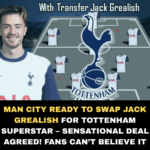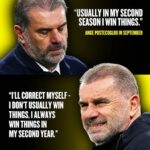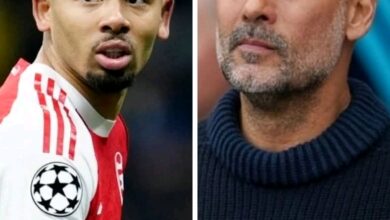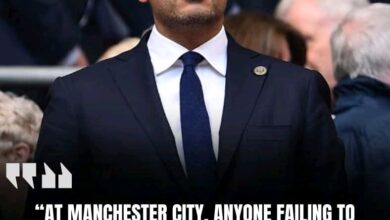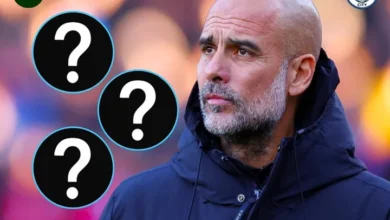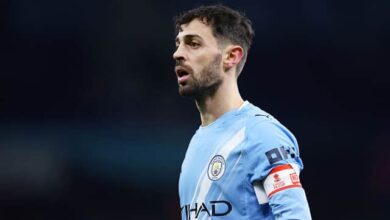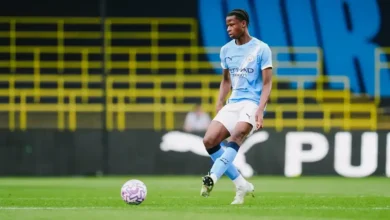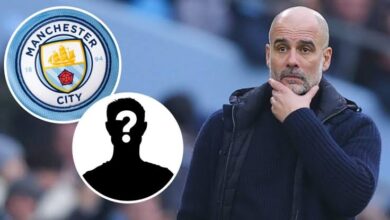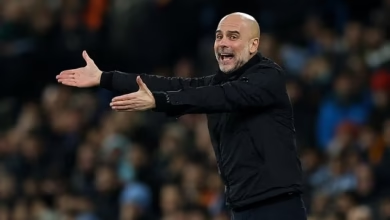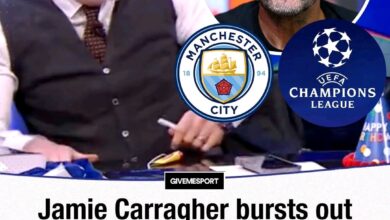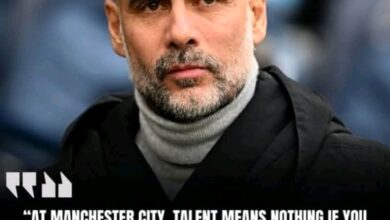Tottenham confurm the signing of an outstanding players
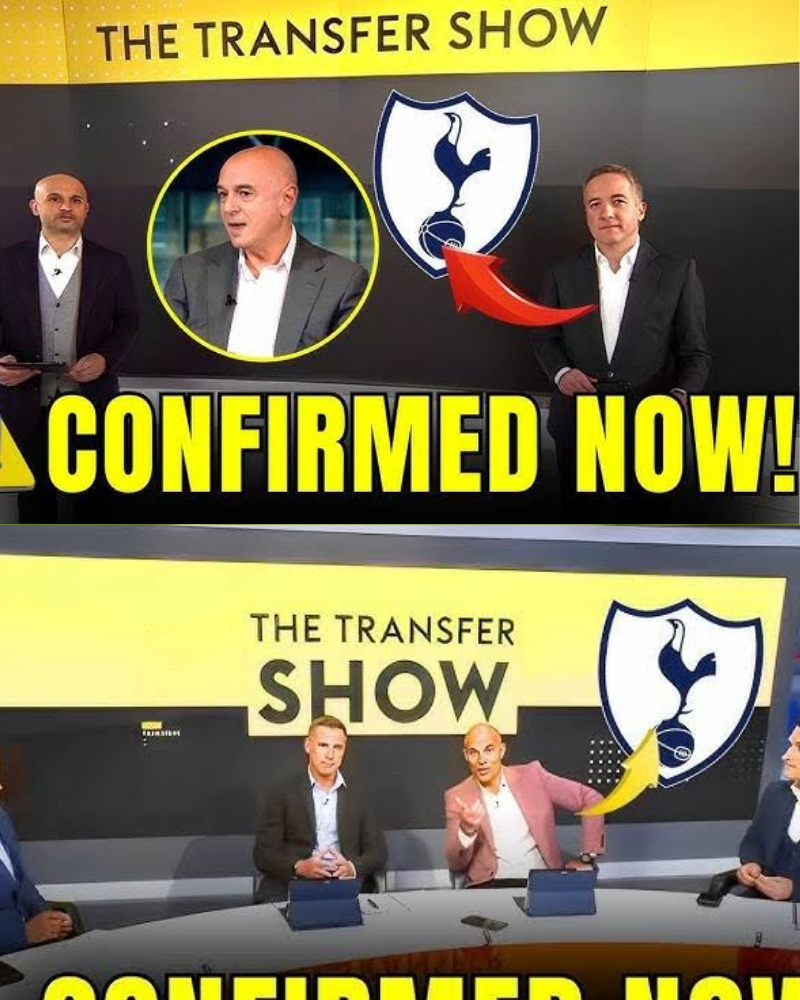
The summer of 2025 marks a pivotal moment in Tottenham Hotspur’s storied history. Fresh from their triumphant Europa League victory—their first trophy in 17 years—the North London club finds itself at a crossroads. While silverware finally returned to the trophy cabinet, the euphoria was short-lived as the club’s catastrophic Premier League campaign exposed fundamental flaws that couldn’t be overlooked.
The appointment of Thomas Frank as the new manager represents a seismic shift in Tottenham’s approach. The Danish tactician, who transformed Brentford from a Championship side into an established Premier League force, now faces perhaps the most challenging task of his managerial career: rebuilding a fallen giant and restoring Spurs to their rightful place among England’s elite.
Ange Postecoglou’s tenure at Tottenham will be remembered as a tale of contrasts. The Australian manager delivered what every Spurs fan had been desperately waiting for—a major European trophy. The Europa League triumph was a moment of pure joy, validating years of faith and patience from the club’s passionate supporters. However, this achievement came at an enormous cost.
The 2024-25 Premier League season was nothing short of catastrophic for Tottenham. Finishing 17th with just 38 points represents one of the most dramatic falls from grace in the competition’s history. For a club that had regularly competed for European places and even title challenges in recent years, this collapse was unprecedented and unacceptable.
The statistics paint a grim picture of Spurs’ domestic struggles. Their defensive frailties were exposed week after week, with the team conceding goals at an alarming rate. The midfield lacked cohesion and control, while the attack, despite moments of brilliance, struggled for consistency. Injuries ravaged the squad throughout the campaign, but the depth of the crisis suggested deeper, systemic problems that extended beyond mere bad luck.
Daniel Levy’s decision to part ways with Postecoglou, despite the European success, was ultimately pragmatic. The board recognized that while cup competitions can be won through tactical nous and momentum, league campaigns require sustained excellence and squad depth—qualities that were glaringly absent during the Australian’s tenure.
Thomas Frank’s appointment as Tottenham manager represents one of the most intriguing managerial moves in recent Premier League history. The 51-year-old Dane has earned widespread acclaim for his remarkable work at Brentford, where he orchestrated one of the most impressive transformations in English football.
Frank’s journey with the Bees began in 2018 when he took over as head coach, initially working alongside former manager Dean Smith. His impact was immediate and profound. Under his guidance, Brentford evolved from a mid-table Championship side into promotion contenders, ultimately achieving their dream of reaching the Premier League in 2021 after a 74-year absence from the top flight.
The statistics from Frank’s time at Brentford are genuinely remarkable. His record of 90 wins in his first 200 games at the club is a testament to his tactical acumen and man-management skills. More impressively, he established Brentford as a stable Premier League side, avoiding the yo-yo syndrome that has plagued many promoted clubs in recent years.
Frank’s tactical philosophy centers around high-intensity pressing, quick transitions, and maximizing the potential of every player in his squad. His ability to identify and develop talent has been crucial to Brentford’s success, with several players flourishing under his guidance and earning moves to bigger clubs. This track record of player development will be crucial at Tottenham, where several talented individuals have underperformed in recent seasons.
The Dane’s approach to management extends beyond tactics. He has fostered a strong team culture at Brentford, emphasizing collective responsibility and shared ambition. This mentality will be essential at Tottenham, where individual brilliance has often been undermined by a lack of team cohesion.
Frank inherits a Tottenham squad that, on paper, contains significant quality but has been undermined by poor recruitment, tactical confusion, and a lack of mental resilience. The new manager’s first task is to assess the current playing staff and identify areas that require immediate attention.
The defensive crisis that plagued Spurs throughout the previous season must be addressed urgently. The sight of young Archie Gray being deployed as a makeshift center-back during the injury crisis highlighted the squad’s lack of depth in crucial positions. Micky van de Ven and Cristian Romero, when fit, form a promising partnership, but their injury records are concerning, and the lack of suitable cover was brutally exposed.
The midfield represents another area requiring significant investment. While James Maddison and Lucas Bergvall have shown flashes of brilliance, the team lacks a dominant defensive midfielder capable of providing stability and control. Yves Bissouma’s uncertain future adds another layer of complexity to the midfield rebuild.
In attack, Tottenham possesses individual talent but lacks the cohesion and consistency required for sustained success. The permanent signing of Mathys Tel from Bayern Munich addresses some concerns, but additional reinforcements are needed, particularly if captain Heung-min Son decides to seek a new challenge elsewhere.
Frank’s approach to the transfer market will be crucial in determining Tottenham’s immediate and long-term prospects. The club’s recent recruitment has been inconsistent, with several high-profile signings failing to justify their fees. The new manager must identify players who not only possess technical ability but also have the mental strength and tactical intelligence to thrive in his system.
The completed signings of Kevin Danso from Lens and Luka Vuskovic from Hajduk Split suggest a focus on defensive reinforcement. Danso, in particular, brings Premier League experience and the physicality required to compete at the highest level. His £21 million fee represents reasonable value in today’s inflated market, assuming he can stay fit and adapt quickly to Frank’s tactical demands.
The departure of Pierre-Emile Hojberg to Marseille for £17 million represents a significant loss of experience and leadership. The Danish midfielder was one of Spurs’ most consistent performers in recent seasons, and his departure creates another void that must be filled.
Bryan Mbeumo emerges as Tottenham’s primary target for the wing positions. The Cameroon international’s 20-goal haul for Brentford last season demonstrated his ability to contribute significantly in the final third. His potential reunion with Frank could be a masterstroke, given their successful partnership at Brentford. However, Manchester United’s interest complicates the situation, potentially driving up the price and creating a bidding war.
Mbeumo’s versatility is particularly appealing, as he can operate across the front line and provide the tactical flexibility that Frank values. His work rate and pressing intensity align perfectly with the manager’s preferred style, making him an ideal target for the Tottenham rebuild.
Antoine Semenyo represents an alternative option should the Mbeumo pursuit prove unsuccessful. The Bournemouth winger’s performances under Andoni Iraola have caught the attention of several top clubs, and his pace and directness could add a new dimension to Tottenham’s attack. His younger age profile also aligns with the club’s apparent strategy of building for the future.
Eberechi Eze’s potential move from Crystal Palace represents perhaps the most exciting prospect for Tottenham fans. The England international’s technical ability and creative flair could transform Spurs’ attacking play. His performances in the FA Cup, where he emerged as Palace’s hero, demonstrated his ability to perform on the biggest stages. However, his acquisition would likely require a significant financial commitment, and Palace’s qualification for European competition may make them reluctant to sell.
Marc Guehi’s situation at Crystal Palace is more complex. The Eagles’ captain has been on Tottenham’s radar for some time, and his leadership qualities could prove invaluable in the dressing room. His contract situation, with just one year remaining, may provide Spurs with leverage in negotiations. However, Palace’s reluctance to lose both Eze and Guehi in the same window could prove problematic.
Jarrad Branthwaite’s potential move from Everton represents a significant gamble. The young defender’s £70 million valuation seems excessive given his limited top-level experience, but his potential is undeniable. David Moyes’ determination to keep him at Goodison Park suggests Everton value him highly, but Tottenham’s European status and Frank’s reputation for developing young talent could prove decisive factors.
Tottenham’s transfer activities will be influenced by Financial Fair Play regulations and the club’s need to balance the books. The Europa League triumph provides additional revenue, but the Premier League’s disappointing finish will impact broadcasting income and potentially affect the club’s ability to attract top-tier sponsors.
The sale of Hojberg provides some financial relief, but further departures may be necessary to fund the required improvements. Several fringe players could be moved on, creating space both in the squad and on the wage bill for new arrivals.
Frank’s experience of working within tight financial constraints at Brentford could prove invaluable in this regard. His ability to identify undervalued talent and maximize the potential of existing players will be crucial in making the most of Tottenham’s resources.
Frank’s tactical approach will require significant adaptation from the current Tottenham squad. His preference for high-intensity pressing and quick transitions demands exceptional fitness levels and tactical discipline. The pre-season period will be crucial in implementing these new methods and ensuring the players understand their roles within the system.
The manager’s track record of improving players individually while maintaining team cohesion offers hope for several Tottenham players who have underperformed in recent seasons. His ability to extract maximum effort from every squad member will be essential in restoring the club’s competitive edge
Tottenham’s rebuild takes place against the backdrop of an increasingly competitive Premier League. The traditional “big six” hierarchy has been challenged by the emergence of well-funded clubs like Newcastle United and the continued success of Leicester City’s model. Frank must navigate this landscape while establishing Tottenham as genuine contenders once again.
The club’s new stadium provides a significant financial advantage, but it also brings increased expectations. The supporters demand not only success but also an entertaining style of play that reflects the club’s traditions. Frank’s attacking philosophy aligns with these expectations, but translating this into consistent results will be the ultimate test.
Thomas Frank’s appointment as Tottenham manager represents a bold gamble that could define the club’s future for years to come. His proven ability to transform teams and develop players offers genuine hope for improvement, but the scale of the challenge cannot be underestimated.
The transfer window will provide the first indication of whether Frank can translate his Brentford success to a much larger stage. The targets identified suggest a clear strategic vision, but executing these plans in an increasingly competitive market will require skill, patience, and perhaps a degree of luck.
For Tottenham supporters, this summer represents both an opportunity and a test of faith. The club’s recent history is littered with false dawns and unfulfilled promises, but Frank’s appointment offers genuine reason for optimism. His track record of sustained improvement and tactical innovation provides a foundation for hope.
The coming months will be crucial in determining whether this new era can deliver the sustained success that has eluded Tottenham for so long. With Frank at the helm and a clear transfer strategy in place, the club has the tools to rebuild and compete at the highest level. The question now is whether they can execute their vision and restore Tottenham to their rightful place among England’s elite.



